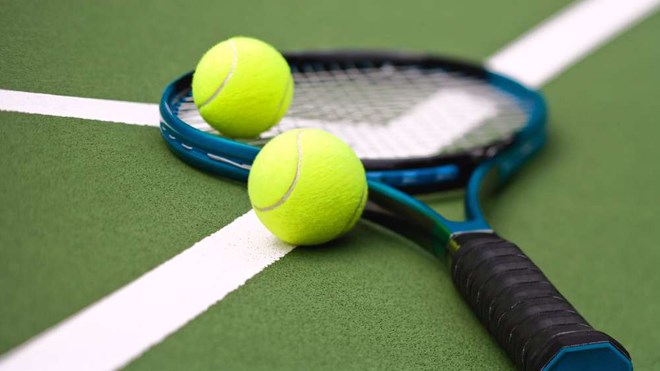Gillian Mauro was always competitive, but when she was diagnosed with multiple sclerosis in 2010, the rising tennis star faced her toughest challenge yet.
Before 2012, Grimsby-born Mauro played tennis competitively and it was one of her biggest passions.
However, two years after the shocking diagnosis, her condition deteriorated to the point that she could barely move to get the ball between points, and she made the devastating decision to stop playing.
“I was just in tears,” she said.
Mauro was dealing with the loss of her favourite sport, but also the symptoms of the condition: bad nerve pain from her torso to her toes, and fatigue at levels she finds difficult to communicate to others.
The double blow was tough.
“Going from being so active… was really depressing,” she said.
In 2017 Mauro decided that although she couldn’t play able-bodied tennis, but needed to be on the court, she would try wheelchair tennis.
After attending a have-a-go session hosted by the Ontario Para Network (ONPARA), she was determined to make the switch.
One of the biggest hurdles getting into the sport, though, was to get the specific wheelchair, which goes for thousands of dollars. Luckily, her friends started a fundraiser and quickly raised the money.
Embracing the sport changed Mauro’s life. Not just for the competitive element she craved, but the impact it had on her day-to-day life.
“(It) made dealing with life better both physically and emotionally,” Mauro said.
Physically, the fitness that came from sports helped with everyday activities. Emotionally, it helped reframe her diagnosis and outlook on life. “Wheelchair tennis... made me realize what I could do, not what I couldn’t do.”
“(It) saved my life,” she said.
After a COVID-enforced hiatus, Mauro resumed playing this summer and competed in an international tennis tournament at Grimsby Tennis Club.
On July 23, she was one of the torchbearers at the Grimsby torch relay ahead of the Niagara 2022 Canada Summer Games.
And, in 2020, Mauro published her book "The Girl In The Wheelchair: It's Not That Bad" through Amazon.
ONPARA was instrumental in getting Mauro into the sport through the try-out session, one of many that the organization arranges. They hold the sessions in community spaces or rehab clinics, where athletes talk to patients about opportunities to get into wheelchair sports.
The patients are often still coping with their new lifestyle after injury or illness, but Doug Hannum, executive director at ONPARA, said it is their job to show them the opportunities to get into wheelchair sports.
He said many athletes whose sporting lives were changed after injury often have a twinkle in their eyes once they discover the sports.
“Our job is to light that fire,” said Hannum.
Not everyone has a support system like Mauro, who can fundraise for needed equipment. To help with that, the organization also offers wheelchair loans to those getting into wheelchair sports, reducing the financial barriers.
ONPARA gets funding from the Ontario Ministry of Tourism, Culture and Sport through the Ontario Amateur Sport Fund. The amount they receive is calculated through ONPARA’s application to the program, said Zakiah Lalani, ministry spokesperson.
In March 2022, the ministry announced a $3-million investment to stabilize the sports and recreation sector post-Covid. ONPARA received funding to grow its network by working with targeted provincial sport organizations to include more para-athletes in their member clubs.
From 2021 to 2022, ONPARA also received Quest for Gold funding to support team training camps.
“Our government is proud to champion participation for all in sport and recreation activities across the province,” said Lalani.
While grateful for the support they've received, Hannum said the organization could always use more funding.
That’s in part because ONPARA only has around 300 members, much lower than sports such as soccer, so it cannot raise as much money from membership fees.
With additional funding, ONPARA could spend more on staff to provide support to athletes and programs, and to provide more individual funding to athletes, such as helping to purchase and maintain wheelchairs.
Chris Pickles is a Local Journalism Initiative reporter for Niagara This Week. His reporting is funded by the Canadian government through its Local Journalism Initiative.



